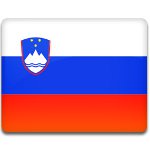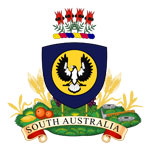Holidays Calendar for December 26, 2018
Independence and Unity Day is a public holiday in Slovenia celebrated on December 26. It commemorates the official proclamation of the results of the Slovenian independence referendum on December 26, 1990.
 Public Holidays →
Åland,
Anguilla,
Andorra,
Antigua and Barbuda,
Argentina,
Aruba,
Australia,
Austria,
Bahamas,
Barbados,
Belgium,
Belize,
Bermuda,
Bonaire, St Eustatius and Saba,
Botswana,
British Virgin Islands,
Bulgaria,
Cayman Islands,
Canada,
Cocos Islands,
Christmas Island,
Cook Islands,
Croatia,
Curaçao,
Cyprus,
Czech Republic,
Denmark, ...
Public Holidays →
Åland,
Anguilla,
Andorra,
Antigua and Barbuda,
Argentina,
Aruba,
Australia,
Austria,
Bahamas,
Barbados,
Belgium,
Belize,
Bermuda,
Bonaire, St Eustatius and Saba,
Botswana,
British Virgin Islands,
Bulgaria,
Cayman Islands,
Canada,
Cocos Islands,
Christmas Island,
Cook Islands,
Croatia,
Curaçao,
Cyprus,
Czech Republic,
Denmark, ...
Saint Stephen’s Day / Boxing Day
In many countries, the second day of Christmas (December 26) is an official non-working holiday. Western Christians celebrate it as Saint Stephen’s Day, while many non-religious people in the United Kingdom and former British colonies refer to it as Boxing Day.
Kwanzaa is an annual week-long celebration that is observed from December 26 to January 1. This holiday is celebrated in the United States and also in diaspora in the Western Africa. Kwanzaa honors the African heritage in African-American culture.
On December 28, 1936, Captain John Hindmarsh made the proclamation announcing the establishment of the government of South Australia as a British province. Proclamation Day is an official holiday in South Australia; originally celebrated on December 28, it was moved to December 26 to coincide with Boxing Day, which is a public holiday in the rest of the Australian states and territories.
On the day after Christmas, the National Candy Cane Day is celebrated. A candy cane is a cane-shaped boiled sweet stick typically associated with Christmas holidays.
National Whiners Day, sometimes spelled National Whiner’s Day, is celebrated annually on December 26. It is a special day of the year when people can whine about anything that is bothering them, and at the same time are reminded to be thankful for what they have.
December 26 — the day after Christmas — is the perfect day to thank your friends and family for their generosity during the holiday season by writing them thank you notes because it is National Thank You Note Day. Of course, you can just shoot them a text, but a handwritten thank you note is so much more thoughtful and personal!
Buying a house or a condo is a big milestone for many people, and it surely deserves to be celebrated. National Homeowners Day, observed annually on December 26, is dedicated to all homeowners and potential homeowners.
National Leftovers Day was created to raise awareness about safe food practices and reducing food waste. It is celebrated the day after Thanksgiving in the United States, on Boxing Day in Australia, and on December 27 in the UK.
While in most states Father's Day is a secular holiday, in some countries it originated from a religious feast dedicated to Saint Joseph. For example, Father's Day in Bulgaria is celebrated on December 26 because the Bulgarian Orthodox Church honors Saint Joseph on this day.
Festivals for December 26, 2018
- Carnival of Putignano in Putignano, Italy
- Dubai Shopping Festival in Dubai, UAE
- Junkanoo in Nassau, Bahamas
- Crucian Christmas Carnival in Christiansted, American Virgin Islands
- TSB Festival of Lights in New Plymouth, New Zealand
- Rome Christmas Market in Rome, Italy
- Maastricht Christmas Market in Maastricht, Netherlands
- Prague Christmas Market in Prague, Czech Republic
- Vilnius Christmas Market in Vilnius, Lithuania
- Krakow Christmas Market in Krakow, Poland
- Riga Christmas Market in Riga, Latvia
- Brussels Christmas Market in Brussels, Belgium
- GUM Christmas Fair at Red Square in Moscow, Russia
- Liège Christmas Market in Liège, Belgium
- Christmas Market in Gendarmenmarkt in Berlin, Germany
This Day in History
- 2021 14-year-old Abel Acosta opened fire on several teenagers at a Texaco convenience store in Garland, Texas, killing 3 and seriously injuring one other.
- 2021 Died: Desmond Tutu, South African Anglican bishop and theologian, known for his work as an anti-apartheid and human rights activist, Bishop of Johannesburg and then Archbishop of Cape Town.
- 2009 The Wuguang High-Speed Railway opened in China. At the time of its opening, it was the world's fastest train service. The speeds were reduced nationally in 2011.
- 2006 Died: Gerald Ford, American politician and statesman who served as the 38th President of the United States from 1974 (Richard Nixon's resignation) to 1977.
- 2004 The final re-run ballot of the Ukrainian presidential election was held, following the Orange Revolution. Viktor Yushchenko was elected the third President of Ukraine.
- 2004 A 9.1-magnitude earthquake occurred in the Indian Ocean with the epicenter off the west coast of Sumatra, Indonesia. It was one of the deadliest natural disasters in recorded history.
- 2001 Died: Nigel Hawthorne, English actor. He is best known for his stage acting and his portrayal of Sir Humphrey Appleby, the permanent secretary, in the 1980s sitcom Yes Minister.
- 1991 The Soviet Union was officially dissolved. The Russian Federation assumed the USSR's rights and obligations and is recognized as its continued legal personality.
- 1986 Born: Kit Harington, English actor who rose to prominence playing the role of Jon Snow in the fantasy drama television series Game of Thrones created by HBO.
- 1977 Died: Howard Hawks, American film director, screenwriter, and producer of the classic Hollywood era. His best known films include Sergeant York and Gentlemen Prefer Blondes.
- 1973 Died: Harold B. Lee, American religious leader who served as the 11th president of The Church of Jesus Christ of Latter-day Saints from July 1972 until his death.
- 1972 Died: Harry S. Truman, American politician and statesman who served as the 33rd President of the United States from 1945 to 1953. Under Truman, the Allies successfully concluded WWII.
- 1971 Born: Jared Leto, American actor, singer, songwriter, and director. He is the lead vocalist for 30 Seconds to Mars. In 2013, he earned an Academy Award for Best Supporting Actor.
- 1963 The Beatles' songs "I Saw Her Standing There" and "I Want to Hold Your Hand" were released in the United States, marking the beginning of international Beatlemania.
- 1963 Born: Lars Ulrich, Danish musician, songwriter, actor, and producer. He is best known as the drummer and one of the founding members of the American band Metallica.
- 1943 The Battle of the North Cape was fought during World War II. The German battleship Scharnhorst was sunk by Royal Navy forces off Norway's North Cape.
- 1931 Died: Melvil Dewey, American librarian and educator, primarily remembered for inventing the Dewey Decimal System of library classification (first published in 1876).
- 1925 Died: Jan Letzel, Czech architect primarily remembered for designing a building in Hiroshima the ruins of which are now the A-Bomb Dome, or Peace Memorial.
- 1899 Born: Udham Singh, Indian revolutionary, best known for assassinating former Lieutenant Governor of the Punjab Michael O'Dwyer to avenge a massacre.
- 1898 French scientists Marie and Pierre Curie announced the discovery of radium to the French Academy of Sciences. The name of the element was derived from the Latin word for "ray".
- 1893 Born: Mao Zedong, Chinese Communist revolutionary and the founding father of the People's Republic of China, which he governed from its establishment in 1949 until his death in 1976.
- 1891 Born: Henry Miller, American writer best known for his semi-autobiographical works Tropic of Cancer, Black Spring, Tropic of Capricorn, and The Rosy Crucifixion trilogy.
- 1890 Died: Heinrich Schliemann, German businessman and a pioneer of field archaeology. He is best known for finding the presumed site of ancient Troy, also known as Ilion.
- 1872 Born: Norman Angell, English lecturer, journalist, writer, and politician. Angell was awarded the 1933 Nobel Peace Prize for his book The Great Illusion.
- 1825 The Decembrist Uprising, also known as the Decembrist Revolt, tool place in Saint Petersburg, Russia. Army officers led about 3,000 soldiers in a protest against Nicholas I.
- 1791 Born: Charles Babbage, English polymath (philosopher, mathematician, inventor, and mechanical engineer) best known as the author of the concept of a programmable computer.
- 1785 Born: Étienne Constantin de Gerlache, Dutch and Belgian lawyer and politician who served as the first Prime Minister of the newly founded Belgian state in 1831.
- 1783 French inventor Louis-Sébastien Lenormand became the first person to make a witnessed descent with a parachute. He jumped from the tower of the Montpellier observatory.
- 1776 The Battle of Trenton was fought during the American Revolutionary War. In this small but pivotal battle the Continental Army defeated the Hessian force garrisoned at Trenton.
- 1530 Died: Zahir-ud-din Muhammad Babur, commonly known as Babur, the first Mughal emperor. He is considered a national hero in Uzbekistan and Kyrgyzstan.
- 1476 Died: Galeazzo Maria Sforza, Duke of Milan from 1466 until his death. Sforza was famous for being lustful, cruel and tyrannical. He was also a patron of music.
- 1194 Born: Frederick II, Holy Roman Emperor. He was one of the most powerful Holy Roman Emperors of the Middle Ages and the head of the House of Hohenstaufen.








